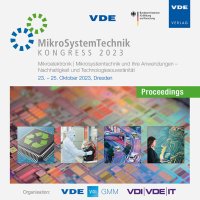Wrinkle-free bonding of thin membranes in a microfluidic bioreactor
Konferenz: MikroSystemTechnik Kongress 2023 - Kongress
23.10.2023-25.10.2023 in Dresden, Deutschland
Tagungsband: MikroSystemTechnik Kongress 2023
Seiten: 4Sprache: EnglischTyp: PDF
Autoren:
Schmidt-Speicher, Leona M.; Ahrens, Ralf; Mager, Dario; Guber, Andreas E.; Korvink, Jan G. (Karlsruher Institut für Technologie (KIT) – Institut für Mikrostrukturtechnik (IMT), Eggenstein-Leopoldshafen, Germany)
Metzger, Christian (KIT – Joseph Gottlieb Kölreuter Institut für Pflanzenwissenschaften (JKIP), Karlsruhe, Germany)
Inhalt:
Understanding the interaction between plants and pathogens, like fungi, allows to develop a more sustainable plant protection. A better knowledge of the communication between a host plant and the attacking fungi could allow to boost the systemic resistance of this crop. A microfluid bioreactor (MBR) allows to share the same supply flow for the cultivation of fungi and plant cellsbut to keep them spatially apart, to be able to analyse the signalling molecules between them. Such MBRs exist and are in use, however, it has been noticed that the current assembly process for the MBR – ultrasonic welding – leads to the development of strong wrinkles in the membrane dividing the cultivation chamber from the supply chamber. This hampers the even flow conditions and creates uneven cultivation areas. Thus, a less aggressive assembly process – laser transmission welding (LTW) – was tested for the installation of the membrane in the MBR and sealing the chip halves tight. The results were promising as LTW created less wrinkles. However, the seal of the laser transmission welded MBR was not as strong as an ultrasonically welded one. Based on these findings we derived a new design that should evade the current problems.


